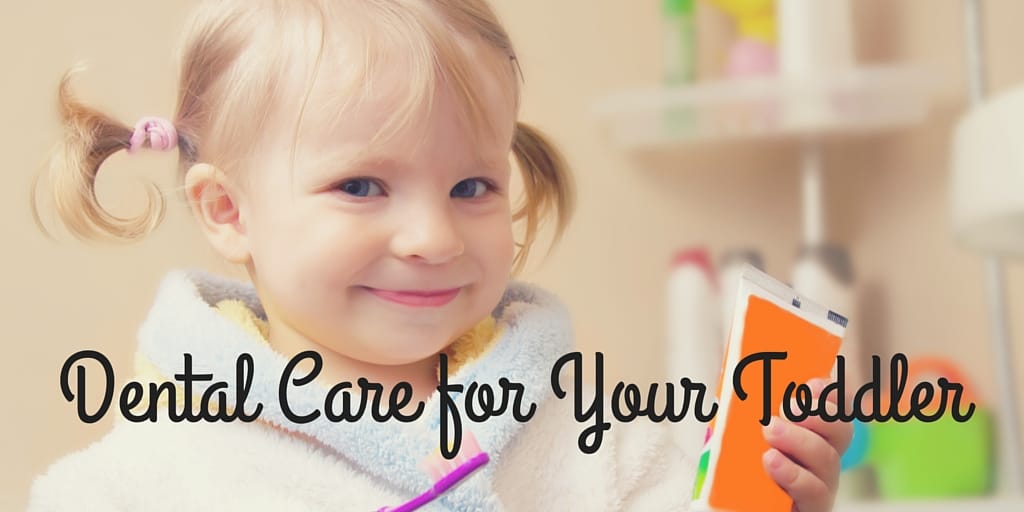
Sources say that nearly half of all children have tooth decay before Kindergarten age. While it may be tempting to think baby teeth are no big deal, in fact they can become so decayed that crowns or caps are needed. This is particularly true if the toddler is young and it will be several years before the baby teeth will begin to fall out on their own. So caring for your toddler’s teeth is a good idea. Here are some tips.
Start Early:
From the time of the first tooth, keep it/them clean. Use plain water and gauze or a washcloth to clean infant teeth twice a day. Then, when your toddler is about 2 to 2 1/2, you can use a small, soft-bristled toothbrush twice a day. At this point, experts still advise that you use plain water and no toothpaste.
Clean Your Child’s Teeth:
While it’s considered a good idea to foster independence in your child, helping him clean his teeth is necessary until he is elementary school age, say experts. Some even advise cleaning your child’s teeth for him until he is able to write in cursive! If you are not comfortable doing the whole job yourself, consider supervising and checking the brushing process, and do any “touch ups” that may be necessary.
Baby Bottle Decay:
It’s not a good idea to let your baby go to sleep while sucking on a bottle of juice, formula or milk. Interestingly, sources note that babies who fall asleep while nursing do not experience the same level of decay as bottle-fed babies who are given a bottle at naptime and/or bedtime. So if your baby is bottle-fed, it’s probably not a good idea to give your baby a bottle while going to sleep – unless it’s got plain water in it or something sugar free. (The sugars in the liquid are what cause the decay, experts say.)
Early Dental Visits:
Statistics show that toddlers who visit the dentist by the age of one have fewer dental problems and lower levels of decay. One year old does seem young for the dentist. If you start early, visiting the dentist will become a normal routine for your toddler and won’t be a “big deal” as it might be if you waited.
When to Use Toothpaste:
Professionals note that fluorosis – or too much fluoride in the system – is a potential risk of using fluoridated toothpaste too early. Young children tend to swallow toothpaste, so it’s recommended that you use a fluoride-free toothpaste until your child reliably refrains from swallowing his toothpaste.


